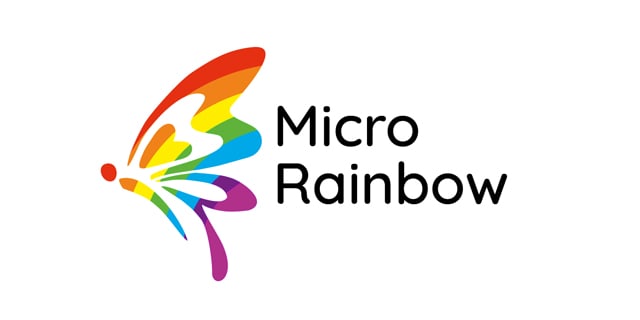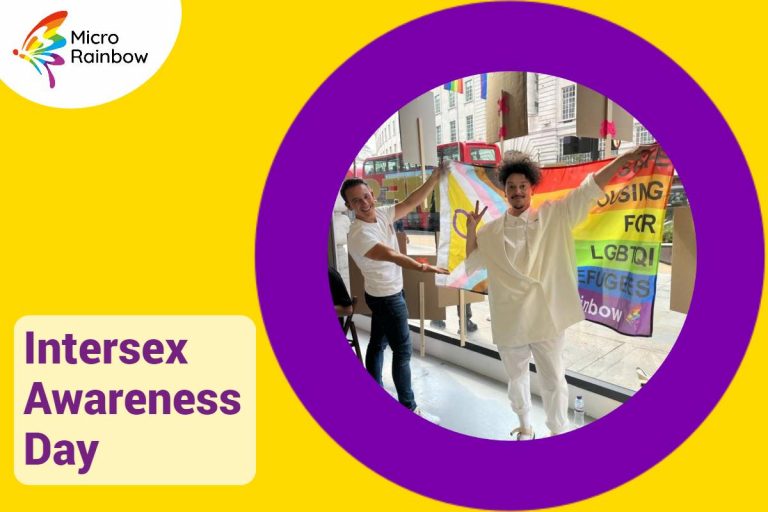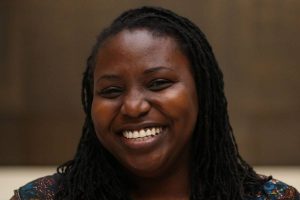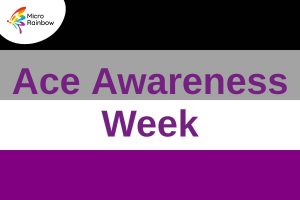Today is Intersex Awareness Day. Since 2012, Micro Rainbow has supported Lesbian, Gay, Bisexual, Trans, Queer and Intersex refugees and asylum seekers who have had to flee their homelands due to their identities, or who they fall in love with. This is accomplished through a series of programmes that provide safe inclusive housing and resources to help beneficiaries find employment. Today, on Intersex Awareness Day Micro Rainbow is sharing stories from some of the intersex refugees and asylum seekers who have lived in our safe houses. It is also an opportunity to learn more about intersex people, the challenges they face, and how increasing awareness of intersex people can help change attitudes.
As it stands now, intersex people face misunderstanding and persecution in many parts of the world, even in areas that are considered supportive and accepting of most LGBTQI identities.
Demographics
Those who fall under that identity of intersex are far more common than one might think. 1.7% of the global population meets some classification as Intersex, that is being born with phenotypes or chromosomal make up that does not align completely with male or female classifications. Approximately 1.1 million people meet the intersex classification in the UK alone. This percentage reveals that it is more common and comparable to being or having identical twins. It is important to spread awareness of how common intersex people are and to provide them with support and community as they make up a noticeable amount of the population and deserve to feel safe and welcome.
Hardships due to intersex identity
Intersex people often face great amounts of persecution and harassment for their identity and bodies. Many people are unaware of the effects of being Intersex which causes them to see those who are different and something they do not fully understand. This can lead to forms of persecution like harassment and bullying.
One of the major issues that intersex people face is ‘corrective’ surgeries performed on them when they are incredibly young that try to rectify the parts of their body that would identify them as intersex. Many studies show that Intersex features and characteristics are very often not harmful, and a majority have no need to be ‘corrected’ or changed in a surgery. Intersex advocacy groups have long been opposed to these surgeries and urge parents of intersex children to refrain from participating in them. Intersex individuals often face many hardships and persecution due to their identity and will seek protection and asylum in distant countries to find safety and community.
Sami’s Story
Micro Rainbow has supported many Intersex people in the past and has helped them escape harmful and dangerous situations while providing opportunities for the future. Sami, an Intersex person from El Salvador describes the fear they had when living in ordinary asylum housing as they were constantly afraid of being assaulted or attacked. Yet after being moved into Micro Rainbow safe housing, they noted a drastic change in their environment and how safe they felt. Saying that “being in this house feels really extraordinary, especially when there is people you can relate with”. Sami had since found community and a system of support to help them through their asylum journey, noting that “Feeling that love, is a huge difference”.
This Intersex Awareness Day Micro Rainbow wishes to remember stories like Sami and so many others who have overcome hardship and found a loving and supporting community since coming to the UK and moving into our safe inclusive housing.
If you would like to help support intersex people like Sami who have been forced to flee persecution, become a Micro Rainbow ally!







